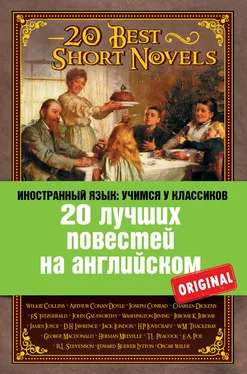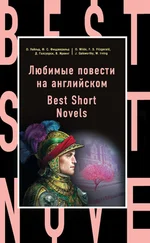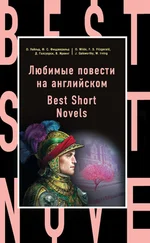[For reasons which we shall not specify, but which to many readers will appear obvious, we have taken the liberty of here omitting, from the MSS. placed in our hands, such portion as details the following up of the apparently slight clew obtained by Dupin. We feel it advisable only to state, in brief, that the result desired was brought to pass; and that the Prefect fulfilled punctually, although with reluctance, the terms of his compact with the Chevalier. Mr. Poe’s article concludes with the following words. – Eds .]
It will be understood that I speak of coincidences and no more . What I have said above upon this topic must suffice. In my own heart there dwells no faith in præter-nature [728]. That Nature and its God are two, no man who thinks, will deny. That the latter, creating the former, can, at will, control or modify it, is also unquestionable. I say ‘at will’; for the question is of will, and not, as the insanity of logic has assumed, of power. It is not that the Deity cannot modify his laws, but that we insult him in imagining a possible necessity for modification. In their origin these laws were fashioned to embrace all contingencies which could lie in the Future. With God all is Now .
I repeat, then, that I speak of these things only as of coincidences. And farther: in what I relate it will be seen that between the fate of the unhappy Mary Cecilia Rogers, so far as that fate is known, and the fate of one Marie Rogêt up to a certain epoch in her history, there has existed a parallel in the contemplation of whose wonderful exactitude the reason becomes embarrassed. I say all this will be seen. But let it not for a moment be supposed that, in proceeding with the sad narrative of Marie from the epoch just mentioned, and in tracing to its d é nouement [729]the mystery which enshrouded her, it is my covert design to hint at an extension of the parallel, or even to suggest that the measures adopted in Paris for the discovery of the assassin of a grisette, or measures founded in any similar ratiocination, would produce any similar result.
For, in respect to the latter branch of the supposition, it should be considered that the most trifling variation in the facts of the two cases might give rise to the most important miscalculations, by diverting thoroughly the two courses of events; very much as, in arithmetic, an error which, in its own individuality, may be inappreciable, produces, at length, by dint of multiplication at all points of the process, a result enormously at variance with truth. And, in regard to the former branch, we must not fail to hold in view that the very Calculus of Probabilities to which I have referred, forbids all idea of the extension of the parallel: – forbids it with a positiveness strong and decided just in proportion as this parallel has already been long-drawn and exact. This is one of those anomalous propositions which, seemingly appealing to thought altogether apart from the mathematical, is yet one which only the mathematician can fully entertain. Nothing, for example, is more difficult than to convince the merely general reader that the fact of sixes having been thrown twice in succession by a player at dice, is sufficient cause for betting the largest odds that sixes will not be thrown in the third attempt. A suggestion to this effect is usually rejected by the intellect at once. It does not appear that the two throws which have been completed, and which lie now absolutely in the Past, can have influence upon the throw which exists only in the Future. The chance for throwing sixes seems to be precisely as it was at any ordinary time – that is to say, subject only to the influence of the various other throws which may be made by the dice. And this is a reflection which appears so exceedingly obvious that attempts to controvert it are received more frequently with a derisive smile than with anything like respectful attention. The error here involved – a gross error redolent of mischief – I cannot pretend to expose within the limits assigned me at present; and with the philosophical it needs no exposure. It may be sufficient here to say that it forms one of an infinite series of mistakes which arise in the path of Reason through her propensity for seeking truth in detail .
Robert Louis Stevenson
The Strange Case of Dr. Jekyll and Mr. Hyde
Mr. Utterson the lawyer was a man of a rugged countenance that was never lighted by a smile; cold, scanty and embarrassed in discourse; backward in sentiment; lean, long, dusty, dreary and yet somehow lovable. At friendly meetings, and when the wine was to his taste, something eminently human beaconed from his eye; something indeed which never found its way into his talk, but which spoke not only in these silent symbols of the after-dinner face, but more often and loudly in the acts of his life. He was austere with himself; drank gin when he was alone, to mortify a taste for vintages; and though he enjoyed the theatre, had not crossed the doors of one for twenty years. But he had an approved tolerance for others; sometimes wondering, almost with envy, at the high pressure of spirits involved in their misdeeds; and in any extremity inclined to help rather than to reprove. ‘I incline to Cain’s heresy,’ he used to say quaintly: ‘I let my brother go to the devil in his own way.’ In this character, it was frequently his fortune to be the last reputable acquaintance and the last good influence in the lives of downgoing men. And to such as these, so long as they came about his chambers, he never marked a shade of change in his demeanour.
No doubt the feat was easy to Mr. Utterson; for he was undemonstrative at the best, and even his friendship seemed to be founded in a similar catholicity of good-nature. It is the mark of a modest man to accept his friendly circle ready-made from the hands of opportunity; and that was the lawyer’s way. His friends were those of his own blood or those whom he had known the longest; his affections, like ivy, were the growth of time, they implied no aptness in the object. Hence, no doubt the bond that united him to Mr. Richard Enfield, his distant kinsman, the well-known man about town. It was a nut to crack for many, what these two could see in each other, or what subject they could find in common. It was reported by those who encountered them in their Sunday walks, that they said nothing, looked singularly dull and would hail with obvious relief the appearance of a friend. For all that, the two men put the greatest store by these excursions, counted them the chief jewel of each week, and not only set aside occasions of pleasure, but even resisted the calls of business, that they might enjoy them uninterrupted.
It chanced on one of these rambles that their way led them down a by-street in a busy quarter of London. The street was small and what is called quiet, but it drove a thriving trade on the weekdays. The inhabitants were all doing well, it seemed and all emulously hoping to do better still, and laying out the surplus of their grains in coquetry; so that the shop fronts stood along that thoroughfare with an air of invitation, like rows of smiling saleswomen. Even on Sunday, when it veiled its more florid charms and lay comparatively empty of passage, the street shone out in contrast to its dingy neighbourhood, like a fire in a forest; and with its freshly painted shutters, well-polished brasses, and general cleanliness and gaiety of note, instantly caught and pleased the eye of the passenger.
Two doors from one corner, on the left hand going east the line was broken by the entry of a court; and just at that point a certain sinister block of building thrust forward its gable on the street. It was two storeys high; showed no window, nothing but a door on the lower storey and a blind forehead of discoloured wall on the upper; and bore in every feature, the marks of prolonged and sordid negligence. The door, which was equipped with neither bell nor knocker, was blistered and distained. Tramps slouched into the recess and struck matches on the panels; children kept shop upon the steps; the schoolboy had tried his knife on the mouldings; and for close on a generation, no one had appeared to drive away these random visitors or to repair their ravages.
Читать дальше
Конец ознакомительного отрывка
Купить книгу












